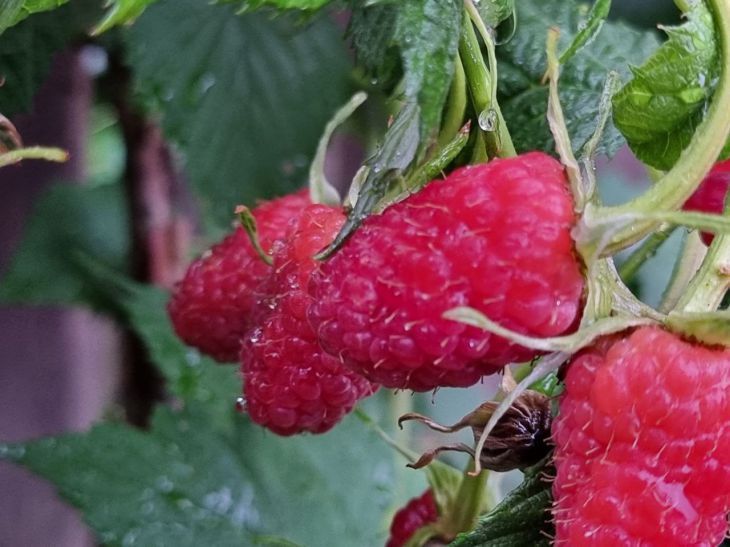Many summer residents and gardeners have “registered” raspberries as a permanent part of their garden.
It is loved not only for its tasty, juicy, sweet berries, but also for its unpretentiousness, resistance to diseases and fairly simple care when growing.
The other side of the coin is that, unfortunately, even with good care of the plant, the resulting berries are often small and sour.
The most common mistake that leads to this result is incorrect feeding.
Nitrogen and magnesium
Experienced gardeners say: in spring, raspberries need nitrogen-containing fertilizers, for example, ammonium nitrate (stimulates growth).

Without such a “treat” the plant will be weak and, accordingly, will produce a very modest harvest.
However, too much nitrogen can also be harmful – the berries will be watery and tasteless.
Please note: if the raspberry leaves start to turn yellow, immediately give it magnesium.
In the first half of summer, treatment with a solution of ammonia and liquid soap is good, which will also protect against pests.
Pruning and watering
It is also important to remove excess shoots - otherwise the raspberries will turn your plot into an impenetrable jungle and will start to get sick.
If you prune regularly, you can ensure good air circulation and protect the plant from fungal diseases.
In addition, this process will help the raspberries concentrate on forming large and juicy berries.
Don't forget about watering - if there is not enough moisture, the raspberries will be small and hard.
But you can’t overdo it, otherwise you risk facing root rot.
Trellis and mulching
In spring, the bushes should be freed from cover and trellises should be installed, which will ensure that the plant receives light and air evenly.
In addition, with this approach, the berries will not come into contact with wet soil.
By mulching you will prevent rapid evaporation of moisture.
This will also provide effective protection for the roots from overheating and block out weeds.
Potassium and phosphorus
In the second half of summer, when the berries begin to set, raspberries no longer need excess nitrogen.
During this period, we add potassium and phosphorus. They strengthen the plant's immunity, and make its fruits juicy and sweet.
Wood ash can be used as a source of potassium, either in dry form or as an ash solution.








